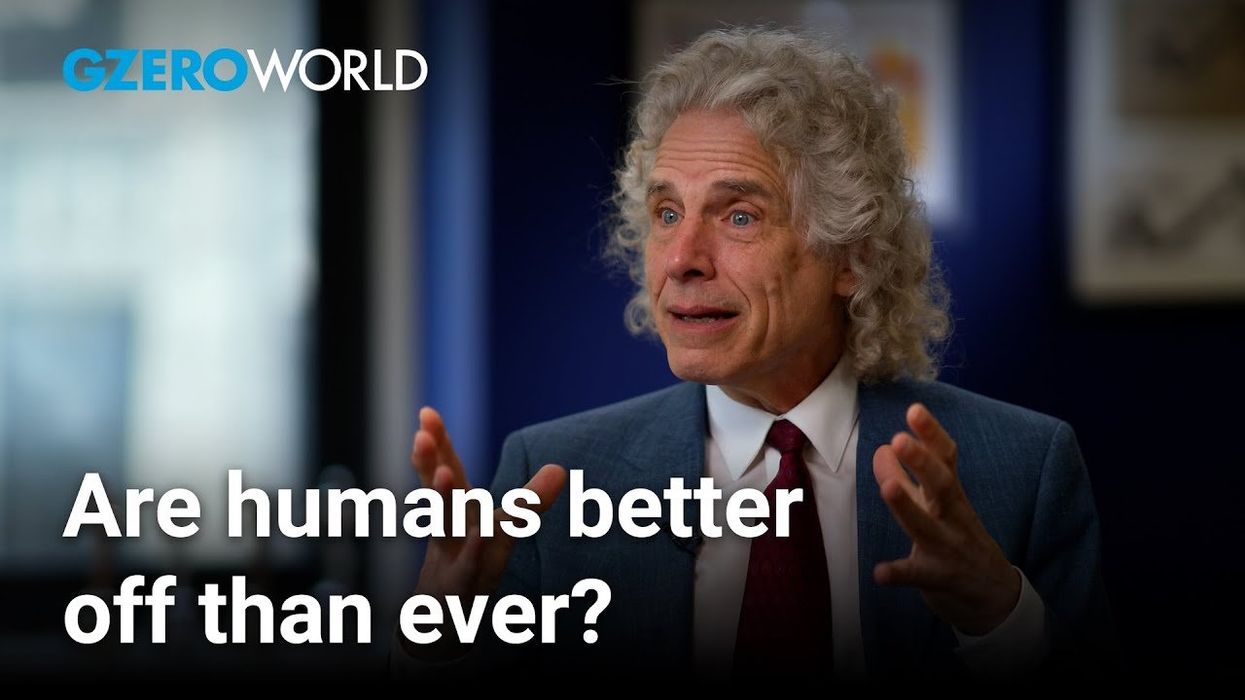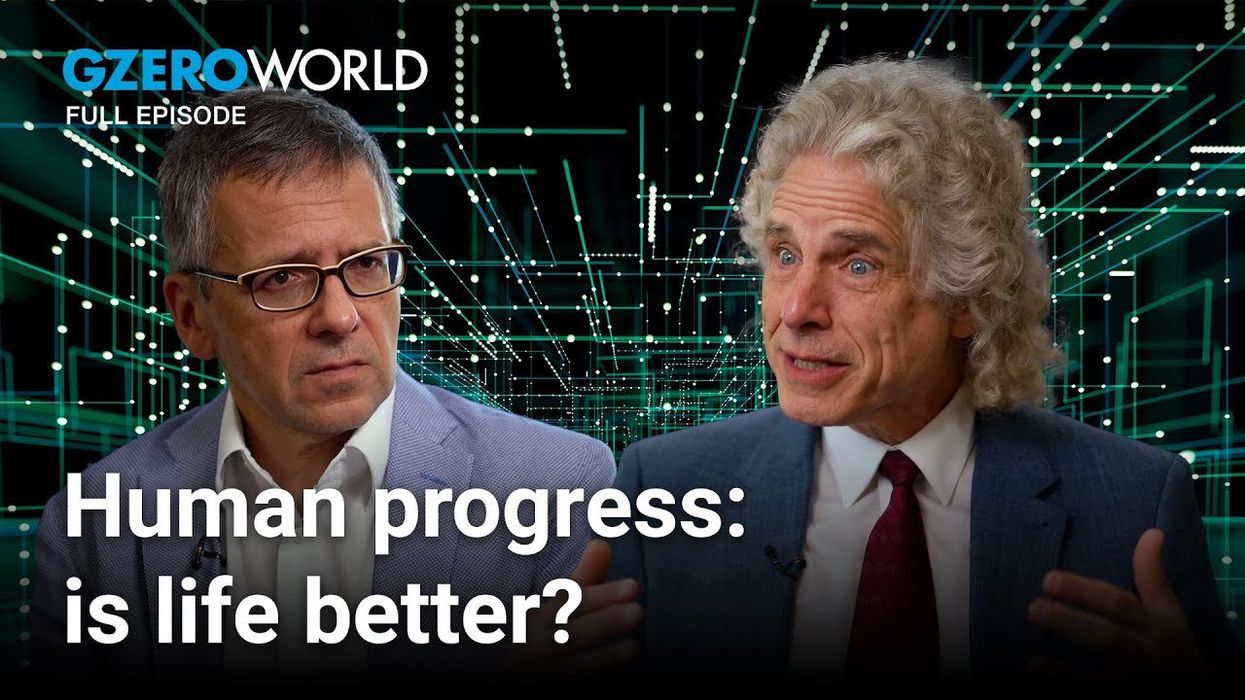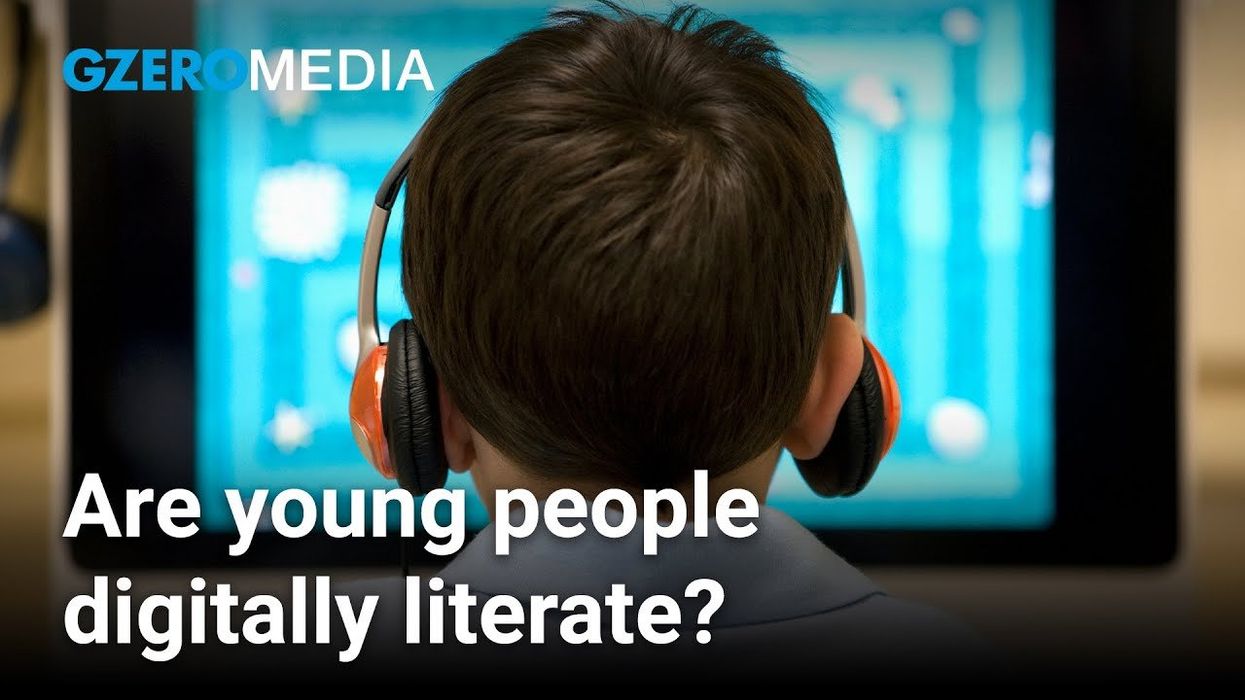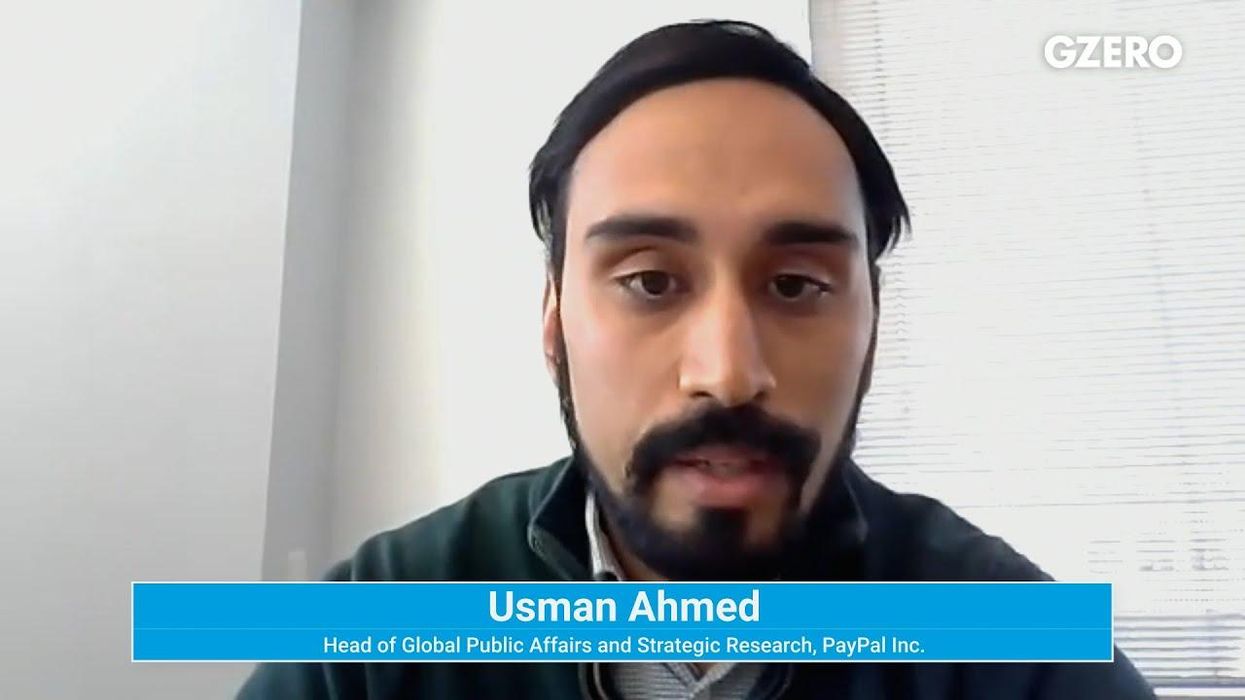GZERO World Clips
Steven Pinker shares his "relentless optimism" about human progress
If you follow the news closely, chances are your view of the state of the world is not super optimistic. From war in Ukraine to a warming planet to global poverty and hunger, there's plenty to get upset about. But what if things are actually getting...better? That's what Harvard psychologist Steven Pinker asks in his interview with Ian Bremmer for the latest episode of GZERO World.
Sep 29, 2023




